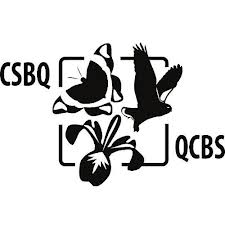Magali Petit

Université du Québec à Rimouski
Ph.D. candidate
Supervisor: François Vézina
Start: 2009-09-01
End: 2015-06-30
Ph.D. candidate
Supervisor: François Vézina
Start: 2009-09-01
End: 2015-06-30
Project
Seasonal acclimatization and fitness in a small resident passerine, the black-capped chickadeeAt northern latitudes, winter is characterized by cold temperatures which force resident birds to increase thermoregulation costs while the short daylenght and the snow cover reduce the food availability. Face to these challenging conditions, small passerines have to use metabolic, physiologic and behavioural adjustments to maintain their body temperature and a balance energy budget. I use black-capped chickadee (Poecile atricapillus), a small resident passerine (10-12 g) living in Quebec, to study what are the mechanisms of winter acclimatization and its consequences. I focuss particularly on which weather parameters determine metabolic adjustments, how winter metabolic adjustments impact the physiological condition and what are the consequences of the winter acclimatization on short- and long-term survival. For my project, I caught free-living black-capped chickadees over the year and especially during winter (from September to March) in the Forêt d'Enseignement et de Recherche Macpès (20 min south of Rimsouki) which is equiped with weather station. Each captured bird was banded with metal and color bands allowing further identification by observation. At each capture, chickadees were weighed, measured, we collected a blood sample and we also measured their metabolic performance (BMR et Msum). Weather data recorded in the forêt de Macpès will allow us to relate within winter weather variation with metabolic adjustments. This study will bring results about which weather parameters (temperature, humidity, radiation) impact winter physiology of small passerines. Data of metabolic performance (BMR and Msum) in relation with data of physiological condition (issued from analysis of blood samples) and data of survival (calculated from observation) will provide information about the relationship between metabolism and physiology of birds at capture and the effects of these trade-offs on fitness of small resident passerines.
Keywords
flexibilité phénotypique, acclimatation hivernale, métabolisme énergétique, condition physiologiquePublications
1- Intra-Seasonal Flexibility in Avian Metabolic Performance Highlights the Uncoupling of Basal Metabolic Rate and Thermogenic CapacityMagali Petit, Agnès Lewden, François Vézina
2013 PLoS ONE
2- Ambient temperature does not affect fuelling rate in absence of digestive constraints in long-distance migrant shorebird fuelling up in captivity
Petit, Magali, François Vézina, Theunis Piersma
2010 Journal of Comparative Physiology B
3- Limited Access to Food and Physiological Trade‐Offs in a Long‐Distance Migrant Shorebird. II. Constitutive Immune Function and the Acute‐Phase Response
Buehler, Deborah M., Francisco Encinas‐Viso, Magali Petit, François Vézina, B. Irene Tieleman, Theunis Piersma
2009 Physiological and Biochemical Zoology
4- Limited Access to Food and Physiological Trade‐Offs in a Long‐Distance Migrant Shorebird. I. Energy Metabolism, Behavior, and Body‐Mass Regulation
Vézina, François, Magali Petit, Deborah M. Buehler, Anne Dekinga, Theunis Piersma
2009 Physiological and Biochemical Zoology
5- Dominant black-capped chickadees pay no maintenance energy costs for their wintering status and are not better at enduring cold than subordinate individuals
Lewden, Agnès, Magali Petit, François Vézina
2011 Journal of Comparative Physiology B

